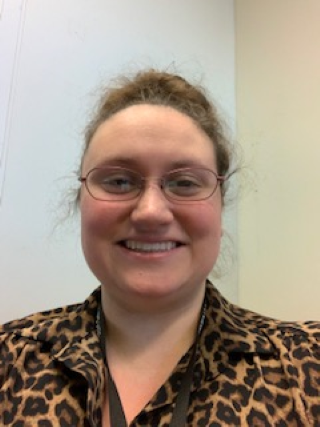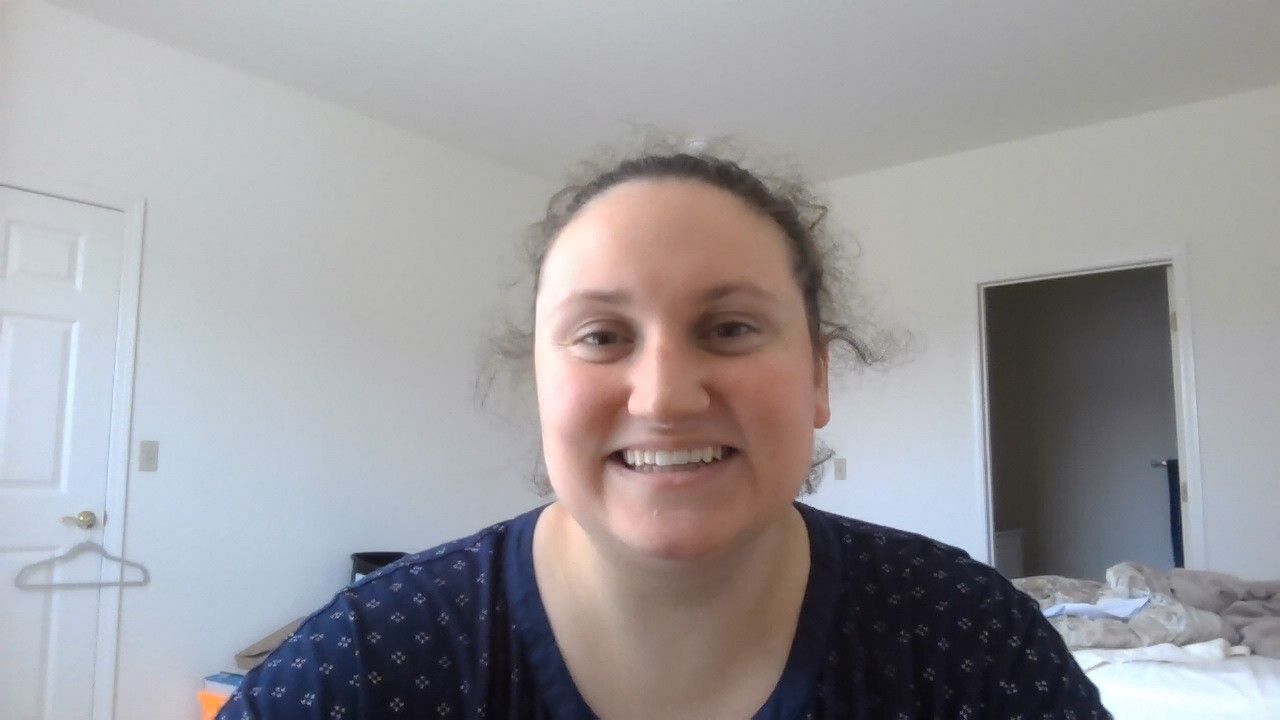Neurodiversity @ IBM
Victoria Brunner: Stress Testing the Chips that the World Runs On
“In business, people should come first. We need to get to the root cause of what the problems actually are
and take action. For all communities, all the time.”
- Victoria Brunner is a nanoscale engineering specialist who works as a
PFA Process and Characterization Engineer at IBM

Tell us a little about yourself.
I’m originally from Morris County, NJ and am the only child of two parents. Today, I live in Wappingers Falls in upstate New York and work in East Fishkill.
I wanted to study computer engineering since I was 12. I loved electronics. I was always interested in where it all comes from and how all this new technology gets created. What it all comes down to is these tiny little things on a little silicon substrate that we call transistors which are a lot like little on/off switches. I was originally going to go into computer science, but my Dad and my uncle encouraged me to apply to Suny Polytechnic’s College of Nanoscale Science and Engineering in Albany. They thought it was more innovative. At a family baptism my uncle talked with me about the potential for nano-technology.
I was further inspired so I applied. And I’m very happy I took that step. I graduated from SUNY CNSE in 2019 with a bachelor’s degree in nanoscale engineering and a concentration in nano electronics. I started working at IBM in January 2020.
What is your role at IBM?
My work as an IBM hardware engineer involves stress testing microelectronics chips. The world runs on chips now. These are the essential semiconductor components “or little pieces of silicon wafer” in everything from cars to computers to gaming systems. I perform analysis for chip fails, mostly before they are packaged and sent to customers, so we can give feedback to designers and manufacturers on what we saw and see if any further action needs to be taken on their part.
What does Neurodiversity Acceptance Month mean to you?

It’s important to acknowledge the achievements of neurodiverse people or people with disabilities in general. But we also need to acknowledge the struggles individuals or the community has. Recognize these struggles so we can talk about it and take action. Neurodiverse individuals have lots of contributions to share, but we also have struggles. You should never have to worry about speaking your truth. For example, saying “I’m proudly autistic.” But equally important is being honest, being willing to be vulnerable with yourself and talk about struggles and issues. By acknowledging these struggles, we make it less disabling.
What is an interesting fact about you that not many people know?
I was one of 400 people who attended Jersey Girls State. It’s a program by the American Legion Auxiliary, which is a veterans-based program here in the United States. We have these Girls States which is like a hands-on introduction to how democracy works in the United States. It’s like an extra citizenship program. My main goal was to point out the challenges of women in STEM. I advocated for that because I had experienced some struggles in high school. I was one of the only girls in my electricity and technical classes. Many of these STEM classes were male dominated. At Jersey Girls, I ran on the platform of increasing awareness of women in STEM and improving the gender gap in STEM. As an A student, I worked hard and tried to bring a new perspective to this group.
If you could give business leaders one piece of advice to better accommodate neurodivergent professionals and create more inclusive workplaces, what would it be?
This term “people with different abilities” is a little too superficially positive. “People with disabilities” at least shows that we do have struggles. I have a lot of little struggles. I’m not a super-hero. Some business branding completely ignores the struggle and the challenges. For example, sometimes I take things literally when they aren’t supposed to be taken literally. Or I have trouble understanding a phrase and have to keep asking questions until I get an answer that leads to my understanding. If I hear something serious has happened, sometimes I’m very emotional about that. I was bullied as a child by others who knew this fact about me and used it against me. I became frantic and frightened unnecessarily.
I think it's always important to put people first, and it could not be more evident in the aftermath of COVID-19 and the social injustice over the past year. Business leaders need to get to the root cause of what the problems actually are and take action. What business leaders actually do for the people, especially for a progressive thinking organization like IBM, really matters. Be honest, be truthful. Business leaders need to focus on action for all communities, all the time. It isn’t just about a “month.”